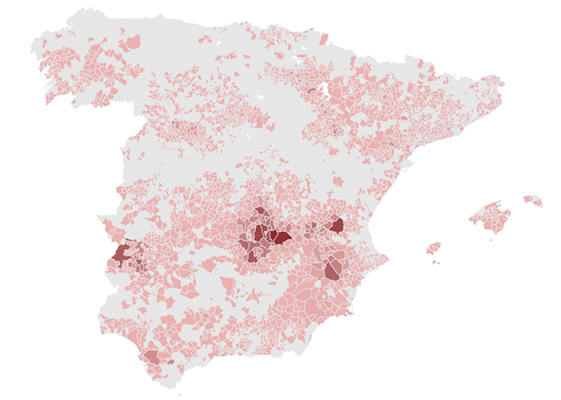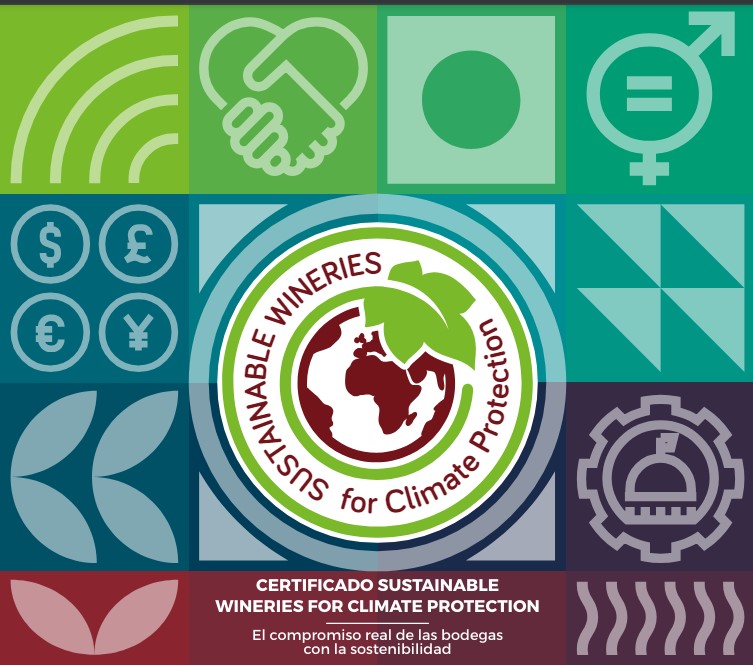Much more than Wine
Leading the way in sustainability
The wine sector in Spain contributes to the social progress of its regions, especially in rural areas, promotes environmental balance through a commitment to sustainable viticulture and drives the country’s economic growth, with wine accounting for almost 2% of the country’s GDP.
ECOnomic, social and environmental
Economic dimension
We account for 1.9% of the country’s GDP and contribute €20.33 billion in added value. This makes the Spanish wine sector a major economic driver.
Social dimension
Thanks to its activity, wine production in Spain plays a key role in revitalising rural communities, creating opportunities that help to retain the population in these areas and address the demographic challenge.
Environmental dimension
The Spanish wine sector is particularly sensitive to protecting and respecting the environment and works to minimise its environmental impact in all its processes.
Sustainable Wineries for Climate Protection
A real and tangible commitment to sustainability is essential. The Sustainable Wineries for Climate Protection certification provides a consistent and measurable standard for the Spanish wine sector.
Spanish wine sector, a commitment to sustainability
Sustainability and maintaining a balance between its three dimensions –economic, environmental and social– are crucial for the Spanish wine industry. The entire value chain is working to integrate these principles into every aspect of its business models, from the vineyard to production and distribution. In addition, there is a growing demand for transparency from consumers and society at large, who not only want to be assured of the quality of the products they buy, but also expect a genuine and measurable commitment to sustainability in its fullest sense.
The Spanish Wine Interprofessional Organization (OIVE) believes it is essential to acknowledge the sector’s commitment and to raise global awareness of the sustainability efforts undertaken by a growing number of Spanish operators. In this context, it recognises the Sustainable Wineries for Climate Protection (SWfCP) seal as a differential certification that effectively measures this commitment in a consistent and measurable manner.

Social dimension
The wine industry has a unique set of attributes that tie it closely to the territory and rural communities. It plays a vital role in supporting the local economy and maintaining the population in small villages.
Follow the Overview link below to explore the regional and local presence of the sector in Spain and see its diverse impact and contribution to the social sustainability of these areas.
Economic dimension
The wine sector makes a significant contribution to the Spanish economy, both in terms of GDP and employment. It also plays a crucial role in the sector’s internationalisation and positively impacts the trade balance. In recognition of this importance, the Spanish Wine Interprofessional Organization (OIVE) has initiated a series of reports to draw attention to the economic and social significance of the wine industry at both national and regional levels.
Environmental dimension
The inherent nature and characteristics of wine production in Spain make it particularly sensitive to environmental protection and sustainability. However, it is essential to continue to make progress in each stage of the production process in order to minimise the environmental impact of Climate Change. Adapting to these new challenges requires strong commitment, coordination and continuous research.
Sustainable Wineries for Climate Protection
The wine sector in Spain is immersed in the challenge and need to achieve sustainability. In its very nature there are already many differential elements that certify it. Therefore, it is important to value it and measure it to demonstrate this reality and for society and markets to be aware of it.
The “Sustainable Wineries for Climate Protection” (SWfCP) seal establishes a series of standards aligned with the SDGs and defines the criteria that a sustainable winery should meet. In addition, it sets a series of objectives to be achieved within an improvement plan that is continuously evaluated by one of the entities authorized to do so.


